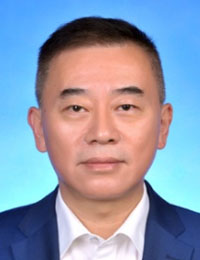SHEN Baiyong

SHEN Baiyong
Professor, Chief Physician
Email: shenby@shsmu.edu.cn
Tel: 021-
Research Interests: Basic and clinical research of pancreatic cancer
Biography
Dr. SHEN Baiyong has been working as a hepatobiliopancreatic surgeon for over 30 years. He and his teammates committed to exploring the pattern of tumorigenesis, development and metastasis in pancreatic cancer, aiming to improve the long-term survival of pancreatic cancer.
Clinically, our pancreatic disease center is one of the largest national referral centers in the largest university hospital in the east of China. We accomplished over 2000 pancreatic operations per year, including over 1300 pancreatic malignant tumor resections. We have also accomplished 2386 robotic assisted laparoscopic surgeries so far, which is one of the largest cohorts worldwide. We also have some prospective clinical trials on the surgery methods and phase I/II adjuvant/palliative therapy on pancreatic disease ongoing.
Scientifically, through multiple advanced technologies, including high-throughput sequencing, protein profiling, spatial omics, molecular biology, and disease modeling approaches, we analyze the molecular mechanisms of tumorigenesis, metastasis and recurrence of pancreatic cancer and try to establish a multi-omics-based molecular classification of pancreatic adenocarcinoma. We are also interested in identifying the specific cell clusters of tumor microenvironment (TME) and understanding the biological and molecular characteristics of these clusters. The knowledge of the immunosuppressive microenvironment by revealing the subtypes and metabolic characteristics of immune cells helps us establish the stratified and targeted treatment for patients with pancreatic cancer.
Publications
Single-cell RNA-seq analysis reveals BHLHE40-driven pro-tumour neutrophils with hyperactivated glycolysis in pancreatic tumour microenvironment. Gut. 2022.
Short-term outcomes after robot-assisted vs open pancreaticoduodenectomy after the learning curve. JAMA Surg. 2020.
Learning curve from 450 cases of robot-assisted pancreaticoduocectomy in a high-volume pancreatic center: optimization of operative procedure and a retrospective study. Ann Surg. 2019.
Hypoxia-induced exosomal circPDK1 promotes pancreatic cancer glycolysis via c-myc activation by modulating miR-628-3p/BPTF axis and degrading BIN1. J Hematol Oncol. 2022.
LncRNA-PACERR induces pro-tumour macrophages via interacting with miR-671-3p and m6A-reader IGF2BP2 in pancreatic ductal adenocarcinoma. J Hematol Oncol. 2022.



